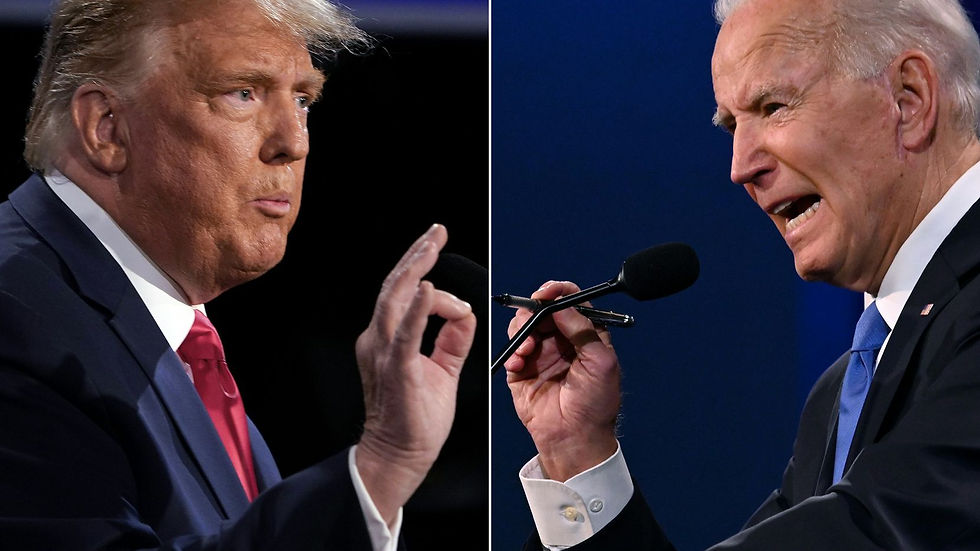The 5 Most Annoying Campaign Mistakes Politicians Make
- charlottenoeljones
- Dec 5, 2021
- 3 min read

Campaigns may be more important than elections, depending on who you ask. How hard you work on getting your message out will reflect on election day. Moreover, no matter if you're running for President of the United States or mayor in a small town in rural Tennessee, having a good campaign is always important. Campaigns are basically advertising yourself and what you have to offer. However, this means campaigns are subject to flaws and can turn voters away.

1. One mistake is not mobilizing young voters. Often, politicians do not focus on issues that pertain to young people. However, just because voters aged 18-29 may not vote frequently, doesn't mean they have no interest in politics. In 2020 young voter went up 8% from 2016. This increase in voting was because problems brought up in the 2020 caught the eye of young voters. In a study done by Tufts University, the issues that drove the youth to the polls were COVID-19, racism, climate change, and the economy. While voter turnout is expected to decrease in 2024, politicians can keep support from this demographic by making mask and vaccine mandates, minority rights and issues, and green initiatives and action against global warming parts of their campaign and platform (Pike, 2020).

2. Another mistake politicians make in campaigns is focusing on issues that cannot be unanimously agreed on. While each party will have a different platform, politicians need to campaign using general issues like improving the economy or establishing peace. If a campaign does not focus on problems that most people agree on, voters will be turned away. A candidate whose solutions to problems are more moderate and appeal to the right, left, and independents is most likely to win.

3. Another campaign mistake politicians make is actively supporting limitations on voting. When politicians support measures like limiting voting hours, reducing the number of drop off boxes for ballots, reducing the days voting is allowed, limiting where voting is allowed, and more, they ostracize potential voters who need alternatives to traditional voting. A politician who makes restricted voting a part of their platform will turn away older voters who are worried about COVID-19 as well as low-income voters who need more time and cost-efficient ways to vote (Viebeck, 2021).

4. Another group politicians fail to mobilize are Latino and Asian voters. While minority voter turnout is higher than it's ever been, it trails far behind white voter turnout. Moreover, African American voter turnout is significantly higher than Asian or Latino turnout. This is because politicians do not focus on problems that pertain to these demographics. For example, many Latinos do not care about immigration and deportation as much as politicians pander the issue to them because only 13.7% of immigrants in the United States are illegal. Moreover, the demographics of immigrants in the United States is not as homogenous as some might think. Surprisingly, while 25% of immigrants come from Mexico, 28% of immigrants in the United States come from Asian countries (Budiman, 2020). Many Latinos do not have a deep connection to this problem and will not be motivated to vote for a politician who does not look deeper into Latino issues.

5. Another mistake campaigns make is not providing enough information to potential voters. Often, politicians will target people who already have an interest in politics and are well informed on big new stories, so white, high-income men between 40-70. Conversely, the most uninformed portion of the population are low-income minority women. For example, women are 2.9% less likely to know a typical political news story than men. Moreover, hispanics are 3.4% less likely to know about a common news story than other voters (Baskin, 2020). However, a distinction needs to be made between ill-informed and uninformed. Although a portion of eligible voters may not know about politics, they do not believe 'fake news'. They just have limited access to available information. However, minorities and women are important to reach out to because when they have the right information, they come to the voting booth in record numbers as was shown in the 2020 election.
Baskin, K. (2020, October 13). Voters’ knowledge of political news varies widely, study shows. MIT Sloan. https://mitsloan.mit.edu/ideas-made-to-matter/voters-knowledge-political-news-varies-widely-study-shows
Budiman, A. (2020, August 20). Key findings about U.S. immigrants. Pew Research Center. https://www.pewresearch.org/fact-tank/2020/08/20/key-findings-about-u-s-immigrants/
Pike, L. (2020, November 7). Youth vote 2020: 53 percent of young voters cast ballots this year. Vox. https://www.vox.com/2020/11/7/21552248/youth-vote-2020-georgia-biden-covid-19-racism-climate-change
Viebeck, E. (2021, June 2). Here’s where GOP lawmakers have passed new voting restrictions around the country. The Washington Post. https://www.washingtonpost.com/politics/2021/06/02/state-voting-restrictions/



Comments